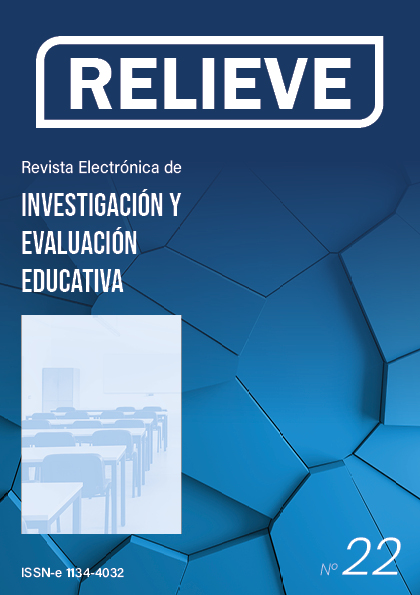Cultural and linguistic diversity and interculturalism in Andalusian school: an analysis of education policies
DOI:
https://doi.org/10.7203/relieve.22.2.6832Keywords:
Interculturality, Migrations, School, Language, Cultural diversityAbstract
This paper is based on some research projects about immigration and education in Spain where I have been working on. The objectives of this work are: 1). To show the linguistic diversity of the students at Andalusian school, due to the migratory phenomenon; and 2). To analyse the educational policies designed to manage the linguistic diversity in schools. The results –obtained by conducting questionaries, interviews and participant observation– indicate that, due to the increase of linguistic diversity in the last decade, some educational policies have been designed to manage the new linguistic and cultural situation, but also indicate that there are ‘different kinds of policies for different kinds of students’. As a conclusion of this paper, I make a critical approach of how the government is treating the arrivals of ‘new students’, and how the different languages have been treated, because some of them have been more recognized than othersDownloads
Downloads
Published
How to Cite
Issue
Section
License
The authors grant non-exclusive rights of exploitation of works published to RELIEVE and consent to be distributed under the Creative Commons Attribution-Noncommercial Use 4.0 International License (CC-BY-NC 4.0), which allows third parties to use the published material whenever the authorship of the work and the source of publication is mentioned, and it is used for non-commercial purposes.
The authors can reach other additional and independent contractual agreements, for the non-exclusive distribution of the version of the work published in this journal (for example, by including it in an institutional repository or publishing it in a book), as long as it is clearly stated that the Original source of publication is this magazine.
Authors are encouraged to disseminate their work after it has been published, through the internet (for example, in institutional archives online or on its website) which can generate interesting exchanges and increase work appointments.
The fact of sending your paper to RELIEVE implies that you accept these conditions.














